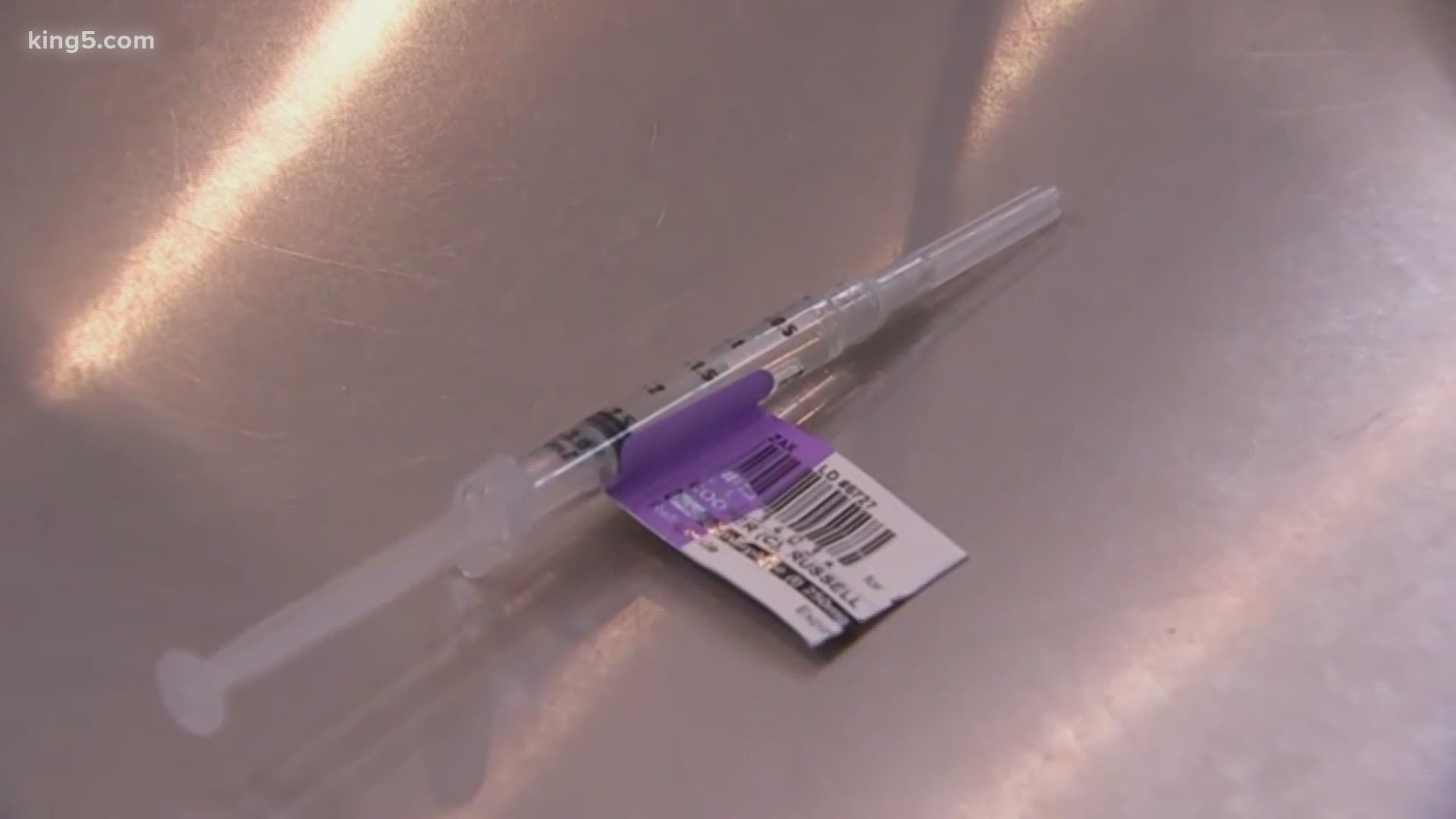SEATTLE — A federal appeals court rejected a proposed safe consumption site in Philadelphia in a 2-1 ruling, saying it would violate a federal "crack house" statute on using buildings to make, sell or use a controlled substance.
Jesse Rawlins of the Yes to SCS Coalition said safe drug consumption sites can be one way to reduce overdose deaths in King County.
“I want to be very, very clear that supervised consumption services or safe consumption spaces, is not the panacea to addressing the overdose crisis,” said Rawlins.
Rawlins said that allowing for safe consumption sites is a policy question, not a legal question. He called on local elected leaders to act.
“Are they committed to moving forward good sound public policy? Are they paying attention that we just had the highest rate of overdose deaths here in King County?” he asked.
The City of Seattle has already allocated $1.4 million for a centralized site but proposals had been met with resistance.
In September, city council members suggested taking that money and giving it to various social services in the city to facilitate supervised drug use with the help of Public Health – Seattle & King County.
In a statement, a spokesperson for Seattle Mayor Jenny Durkan’s office said that the city will continue to work with health officials on the issue.
“Regardless of this week’s ruling, the City Human Services Department will continue to work with Public Health – Seattle & King County to implement a proposal to expand access to drug treatment and increased services for people experiencing substance use disorders. We expect to meet with PHSKC in the coming days,” the statement said.
The news of the ruling comes as Public Health – Seattle & King County noted 42 overdose deaths between Dec. 27, 2020, and Jan. 9, 2021. It is the most the county has ever had in a two-week span.
“One thing I'd love to clarify is we actually have a methamphetamine crisis here in Seattle, King County, in Washington state,” said Rawlins. “We continue to say the 'opioid crisis' and 'or the opioid' situation. And that is a very whitewashed way to conceptualize what is happening outside in Seattle, King County, in Washington State.”
Safe consumption sites would only be a part of the solution, he said.
“There are many, many interventions that local leaders need to step up and implement if we're actually going to reduce the problematic drug use that we see happening outside on the streets of Seattle and King County,” said Rawlins.


